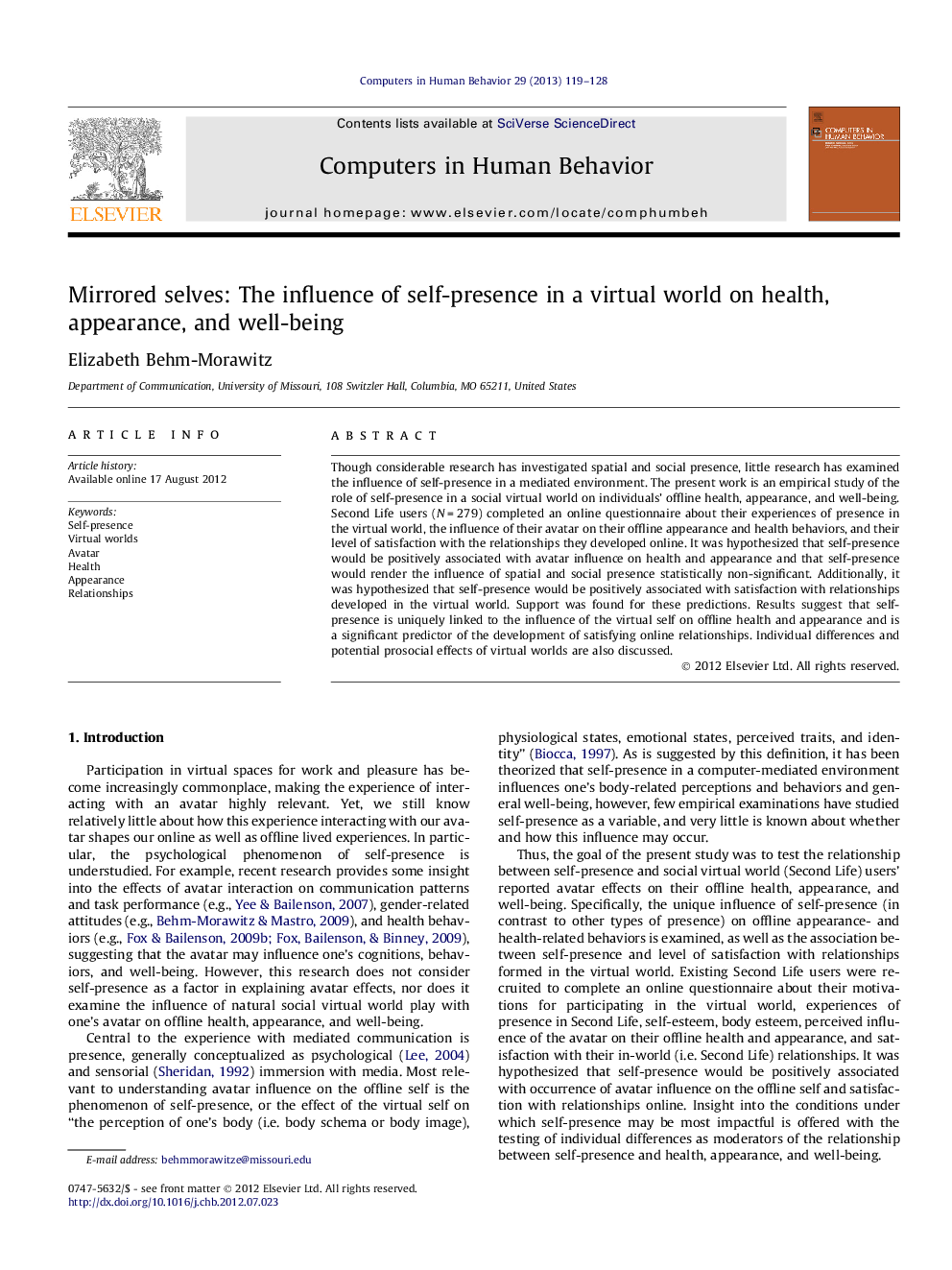| Article ID | Journal | Published Year | Pages | File Type |
|---|---|---|---|---|
| 351158 | Computers in Human Behavior | 2013 | 10 Pages |
Though considerable research has investigated spatial and social presence, little research has examined the influence of self-presence in a mediated environment. The present work is an empirical study of the role of self-presence in a social virtual world on individuals’ offline health, appearance, and well-being. Second Life users (N = 279) completed an online questionnaire about their experiences of presence in the virtual world, the influence of their avatar on their offline appearance and health behaviors, and their level of satisfaction with the relationships they developed online. It was hypothesized that self-presence would be positively associated with avatar influence on health and appearance and that self-presence would render the influence of spatial and social presence statistically non-significant. Additionally, it was hypothesized that self-presence would be positively associated with satisfaction with relationships developed in the virtual world. Support was found for these predictions. Results suggest that self-presence is uniquely linked to the influence of the virtual self on offline health and appearance and is a significant predictor of the development of satisfying online relationships. Individual differences and potential prosocial effects of virtual worlds are also discussed.
► The role of self-presence on offline health, appearance, and well-being was studied. ► Self-presence uniquely predicts avatar influence on offline health and appearance. ► Self-presence is positively related to satisfaction with online relationships. ► Self-presence in a social virtual world promotes health and well-being. ► Motivations to participate in a virtual world affect degree of avatar influence.
